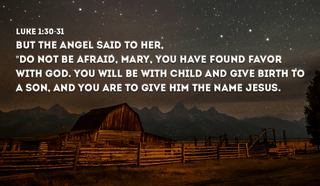
- Recent Translations
- All Translations
Luke 1:69
Share
Settings
Luke 1:69 Meaning and Commentary
And hath raised up an horn of salvation for us
Meaning the Messiah, whom God had now raised up:
in the house of his servant David;
in David's family, he being now conceived by a virgin of his house; and who, in a little time, would be born in Bethlehem, the city of David. He is called "an horn of salvation", because he is a powerful Saviour. "Horn" denotes power; it being that to a beast, as the arm is to a man, by which it defends itself, and pushes down its enemies; and "salvation" is the work Christ came to effect, and for which he was raised up, and sent: and a Saviour he is, and a mighty one, as appears from his doing and suffering what he has; as bearing all the sins of his people, and making reconciliation for them; obeying all the precepts of the law, and undergoing the penalty of it; being made a curse, and becoming obedient to death, even the death of the cross: as also, from his delivering them from sin, Satan, and the law, which no other could have done; and from his grappling with, conquering, spoiling, and destroying all his, and our enemies. Moreover, the word "horn" signifies regal power, honour, and dignity; see ( Daniel 7:24 ) and so may not only denote the work of Christ as a Saviour, but his office also as a King, who in the discharge of that is likewise a Saviour; for he not only rules, and governs, but protects, defends, and preserves his, people, by his power; see ( 1 Samuel 2:10 ) ( Psalms 132:17 ) .

